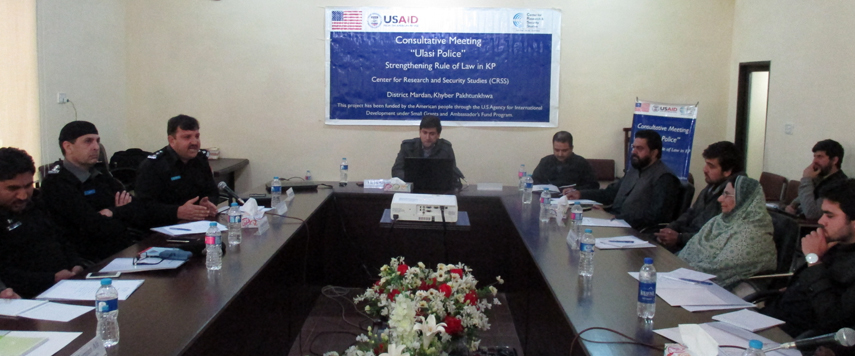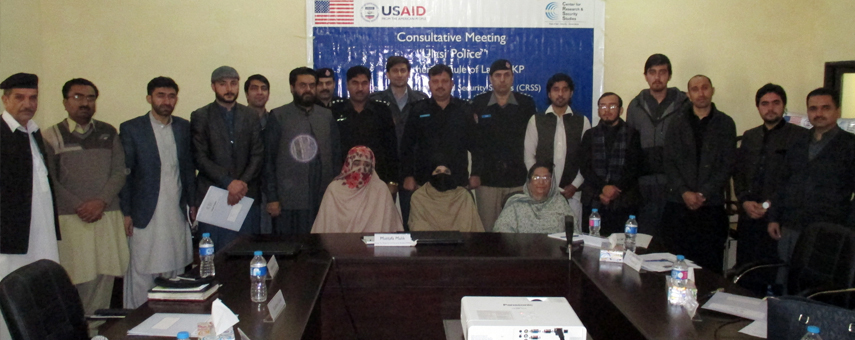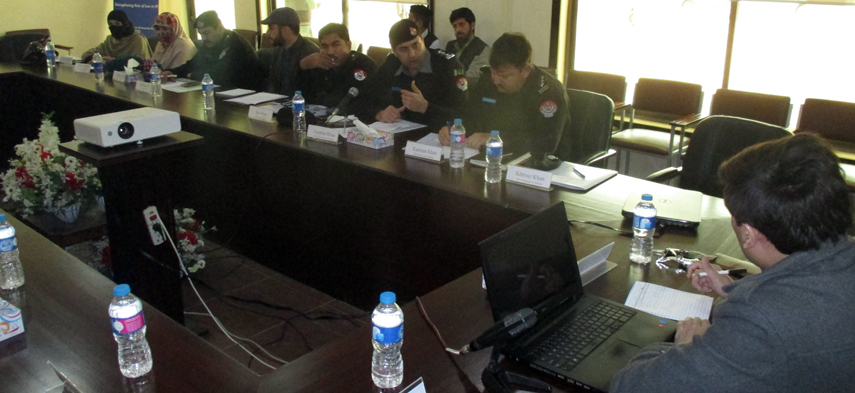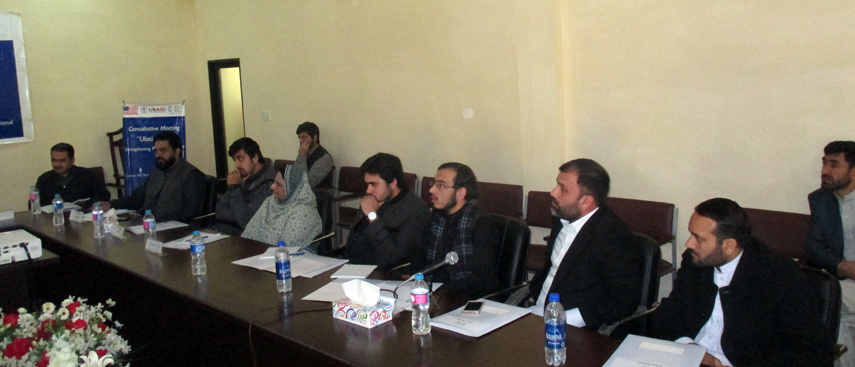The changes in police and improvement in services oriented for public welfare need to be massively disseminated for awareness especially in rural areas. The behavioral and attitudinal changes in police are critical for ameliorating the public-police trust deficit. The role of communities for a peaceful society is crucial. The reforms have made KP Police ever more accessible and accountable.
These views were expressed by the members of working group on police reforms during a consultative meeting at District Police Office, Mardan. The meeting was a part of the project “Ulasi Police”, which is an awareness and advocacy campaign undertaken by the Center for Research and Security Studies (CRSS) – as part of USAID Small Grants and Ambassadors’ Fund Program – to strengthen the rule of law in KP province by promoting and disseminating the significant police reforms aimed at incorporating local communities’ policing needs and international human rights standards. The endeavor aims to tackle the trust deficit between the public and police, help KP police become an accountable and community-focused police force.
They said that the public-police dialogue on the policing needs of communities, propagation of police reforms and public services on offer by the police should continue in a sustainable manner. Ulasi Police project has a great impact in addressing the public-police trust deficit, establishing linkages between them, helping public learn about the police reforms and police to incorporate the policing needs of communities.
The members of working group from police said that the overall objective of KP police reforms is to establish effective linkages and address trust deficit between the public and police. The Dispute Resolution Councils (DRCs) are one of the most promising success stories of KP police reforms which – through an alternate dispute resolution system – not only reduced the burden of cases on police and the judiciary but have also successfully provided speedy justice to the citizens. The public can now easily access the highest level police officials through several means of communication offered by Police Access Service (PAS), for response within 24 hours. PAS can also be used for complaints against police. The attitudinal and behavioral change is one of top most considerations in reforming KP police. The issue is also being addressed through curriculum based training techniques used in police training schools. While KP police is seriously reforming itself, there is a dire need for the education of its officials on new laws and policies. The specialized training schools which are at the core of capacity building of KP police, have increased the performance in different areas such as investigation, intelligence, riot management, explosive handling, IT and tactics.
The participating members from community said that there was a significant attitudinal and behavioral change in police today. But all stakeholders including communities, civil society and other relevant departments also have a crucial role to play for ensuring rule of law. The police reforms augur well for public-police partnership for peaceful society, but there are some areas which need further reformation. They should work more on attitudinal change which can greatly improve their relations with public. The impartial investigation can also bridge the gaps and address the public-police trust deficit. The extremely long duty hours of police should be revised to address the issue of their harsh behaviors towards public. The political influence over the police can also be seen reduced.



